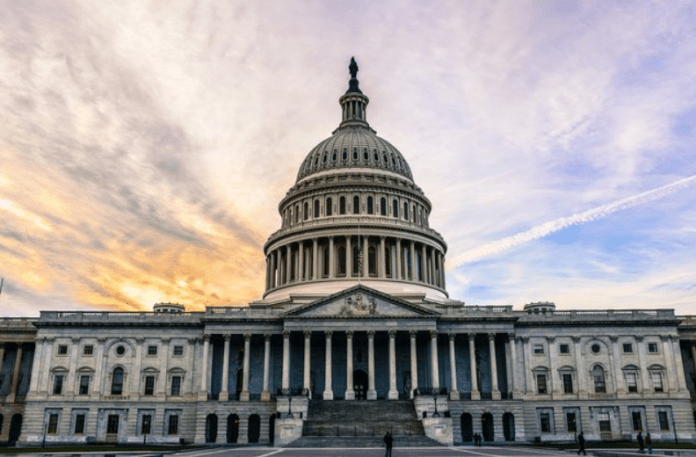New legislation introduced in both houses of Congress on Thursday (November 21) brings artistes one step closer to receiving performance rights royalties on radio airplay.
The Ask Musicians for Music Act (AM-FM) would require radio stations to get consent from recording artists to play their music.
The legislation was introduced in the Senate by Sen. Marsha Blackburn (R-TN) and in the House by Rep. Jerrold Nadler (D-NY), who called the current copyright system for radio “patchwork” and said the act would require all radio services to pay a fair market value for the music they use.
The bill follows the Fair Play Fair Pay Act, which Blackburn and Nadler introduced in 2015 and 2017 to achieve the same goal, but failed to pass.
“The United States in an outlier in the world for not requiring broadcast radio to pay artiste when playing their music, while requiring satellite and internet radio to pay,” said Nadler in a statement.
“This is unfair to both artists and music providers. I’m proud to sponsor the Ask Musician For Music Act of 2019 which would give artists and copyright owners the right to make a choice to allow AM/FM radio to use their work for free or to seek compensation for their work. The bill would also allow them to negotiate rates with broadcasters in exchange for permission for it to be aired. This is what music creators want and deserve.”
SEE THIS:
If the AM-FM Act were to pass, it would likely trigger negotiations for artists’ royalty rates. Since there is no master recording performance right in the United States, terrestrial radio stations get to play music for free without compensating labels who own the music or the artists who create it.
This act was filed as a response to the National Association of Broadcasters’ (NAB) fight against the Satellite Television Extension and Localism Act Reauthorization Act (STELAR), industry sources tell Billboard. That act is set to expire at the end of this year and several bills to reform or extend that act have been filed.
The expiring legislation allows local satellite and cable carriers to use a compulsory license and get a discounted rate on the rebroadcast of network television stations in remote rural markets that years ago weren’t reached by nearby local TV stations. While the multichannel programming providers are supposed to ask for permission to rebroadcast the programming from such stations, part of STELAR allows the satellite operators to skip the retransmission consent and free-market negotiations and pay a Copyright Royalty Board Rate.
“There is no policy justification or technological reason for STELAR to be reauthorized,” reads a white paper on STELAR on the NAB’s website. “The time has come to stop subsidizing billion-dollar satellite TV companies and to instead provide viewers with the local news, weather and emergency information they want and need. Congress should let STELAR expire.”
The AM-FM Act’s introduction was immediately applauded by music industry organizations.
“We applaud Chairman Nadler and Senator Blackburn for their leadership in introducing bipartisan, bicameral legislation to ensure creators receive fair market value for their music on all platforms,” said Recording Industry Association of America chairman and CEO Mitch Glazier in a statement. “By requiring broadcasters to get permission from music creators to use their music, in the same way, broadcasters are entitled to give permission for the use of their signal – the AM/FM Act addresses inequities in law that should be fixed.”
Added Recording Academy chief industry officer Daryl Friedman: “The AM-FM Act will give artists control over what is rightfully theirs, their music. The legislation is about consent for use of content, a basic concept that the NAB is seeking for its own television members. We thank Senator Blackburn and Representative Nadler for their leadership on this issue, and ask members of Congress who recognize the importance of intellectual property to join them and pass this legislation.”
“Songwriters and music publishers support the AM-FM Act because music has value, and creators should be able to decide what is best with their intellectual property,” said National Music Publishers Association president and CEO David Israelite in a statement. “For too long broadcasters have benefited from the lack of a sound recording performance right, as well as antiquated consent decrees that allow them to pay songwriters less than fair market value.”
“The AM-FM Act ensures that the people who make the music have a protected property right in their own work by requiring broadcasters to get permission before they transmit recordings over the air,” added SoundExchange CEO Michael J. Huppe. “It sets the table for meaningful marketplace negotiations and ends the current market distortion in our laws that forces artists to subsidize the multi-billion-dollar FM radio broadcast industry.
However, passage of the act will facing some stiff opposition from NAB, which firmly opposes the legislation saying it would cause undue harm to the radio industry.
“NAB opposes the AM-FM Act, which could decimate the economics of America’s hometown radio stations that have launched the careers of countless musicians and exposed legacy artists to a new generation of listeners,” NAB president and CEO Gordon Smith said in a statement.
NAB added that its “door remains open to work with the record labels to find a holistic solution to this issue that reflects the enduring value to artists and labels of local radio to our hundreds of millions of terrestrial and digital listeners. Unfortunately, the record labels have shown little interest in having those discussions.”
Since February, NAB has been supporting a competing bill, The Local Radio Freedom Act, which opposes any potential legislation that imposes new performance royalties on broadcast radio stations for music airplay. The act is the latest biennial attempt at passing this legislation after similar bills failed in 2017 and 2015. It currently has the backing of bipartisan group of 201 representatives in the House and 25 senators, according to the NAB.

